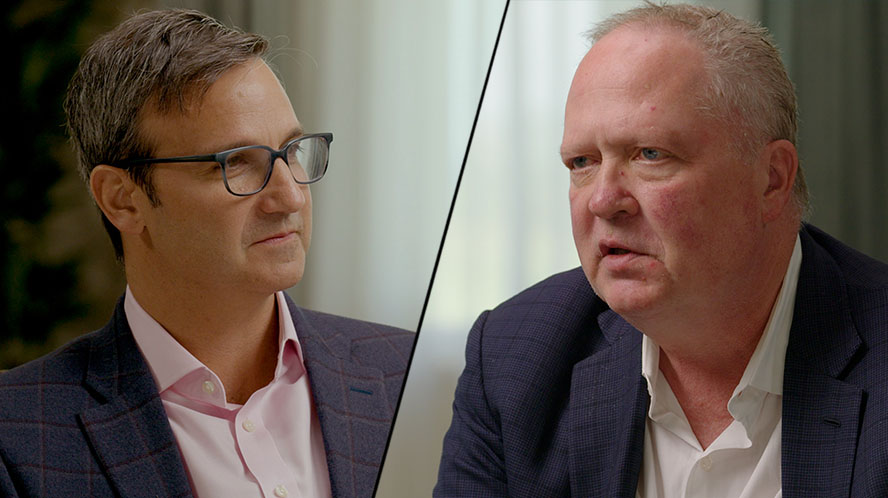This material has been prepared for educational purposes only. The guest speakers are neither employees of nor affiliated with Morgan Stanley Smith Barney LLC, otherwise known as Morgan Stanley. The opinions expressed by our external guests are solely their own and do not represent the views of Morgan Stanley.
This material is not a solicitation of any offer to buy or sell any security or other financial instrument or to participate in any trading strategy.
Artificial intelligence (AI) is subject to limitations, and you should be aware that any output from an AI-supported tool or service made available by the Firm for your use is subject to such limitations, including but not limited to inaccuracy, incompleteness, or embedded bias. You should always verify the results of any AI-generated output.
Private equity funds typically invest in securities, instruments, and assets that are not, and are not expected to become, publicly traded and therefore may require a substantial length of time to realize a return or fully liquidate. They typically have high management, performance and placement fees which can lower the returns achieved by investors. They are often speculative and include a high degree of risk. Investors can lose all or a substantial amount of their investment. They may be highly illiquid with significant lock-up periods and no secondary market, can engage in leverage and other speculative practices that may increase volatility and the risk of loss, and may be subject to large investment minimums.
When Morgan Stanley Smith Barney LLC, its affiliates and Morgan Stanley Financial Advisors and Private Wealth Advisors (collectively, “Morgan Stanley”) provide “investment advice” regarding a retirement or welfare benefit plan account, an individual retirement account or a Coverdell education savings account (“Retirement Account”), Morgan Stanley is a “fiduciary” as those terms are defined under the Employee Retirement Income Security Act of 1974, as amended (“ERISA”), and/or the Internal Revenue Code of 1986 (the “Code”), as applicable. When Morgan Stanley provides investment education, takes orders on an unsolicited basis or otherwise does not provide “investment advice”, Morgan Stanley will not be considered a “fiduciary” under ERISA and/or the Code. For more information regarding Morgan Stanley’s role with respect to a Retirement Account, please visit ww.morganstanley.com/disclosures/dol. Tax laws are complex and subject to change. Morgan Stanley does not provide tax or legal advice. Individuals are encouraged to consult their tax and legal advisors (a) before establishing a Retirement Account, and (b) regarding any potential tax, ERISA and related consequences of any investments or other transactions made with respect to a Retirement Account.
Morgan Stanley at Work services are provided by wholly owned subsidiaries of Morgan Stanley.
Information contained herein is based on data from multiple sources considered to be reliable and Morgan Stanley Smith Barney LLC (“Morgan Stanley”) makes no representation as to the accuracy or completeness of data from sources outside of Morgan Stanley.
© 2025 Morgan Stanley Smith Barney LLC. Member SIPC.
CRC# 4710548 08/2025





